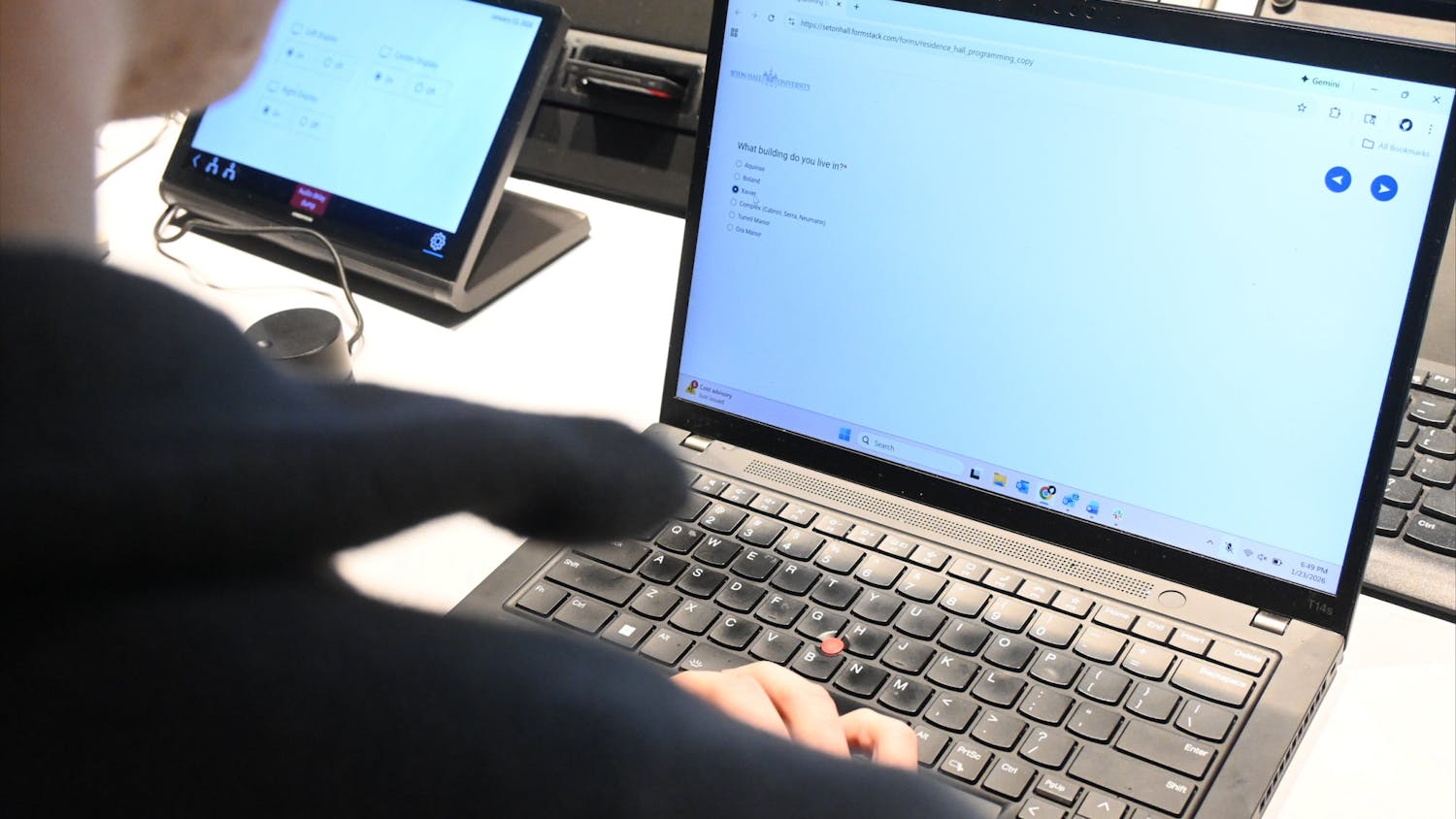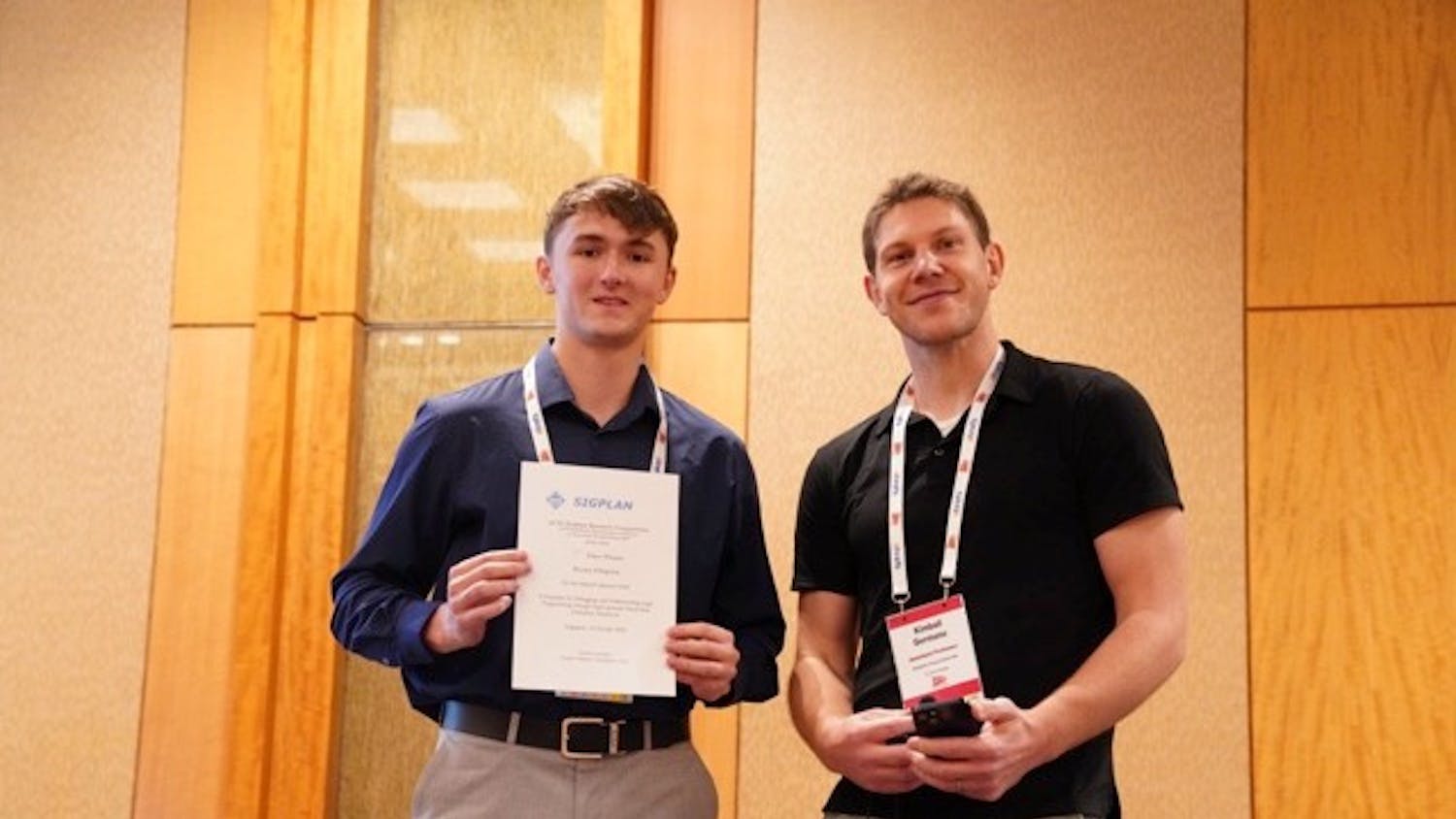On Wednesday, Nov. 5, someone tampered with a fire alarm in Aquinas Hall dormitory, adding to the slew of activations this semester.
In an email sent to Aquinas residents, Residence Hall Director Josh Reda stated that an alarm on the third floor (in the Yellow Section) was tampered with by burning some of the plastic on the device in the early hours of Wednesday morning, Nov. 5. The area was blocked off and will remain off limits “until further notice or until the responsible person or persons comes forward.”
“We were able to replace the device, however, actions like this one are not acceptable at Seton Hall University and in Aquinas Hall,” Reda said in the email. “Attempting to damage University property and potentially put student’s well-being at risk relates back to our University’s policies on fire safety, but also the expectation of having respect for one another as members of the Seton Hall Community.”
In the email, Reda encouraged anyone who knows information on the incident to come to his office on the second floor of Aquinas. This is only the latest in a series of fire alarm activations in Aquinas Hall dormitory that has left some residents concerned, curious and annoyed.
“It (the recent fire alarm activations) was frustrating, especially having to wake up at 2:15 a.m. multiple times,” said Garrett McGee, a freshman resident of Aquinas. “It was terrible.”
The Nov. 5 incident brought to 14 the number of times fire alarms have gone off in Aquinas Hall since January 2014. Of the 14, nine have been this semester. Only three of the 14 were scheduled fire drills, according to Thomas Giordano, assistant director for emergency management for Seton Hall’s Department of Public Safety and Security.
The first alarm activated this semester was on Aug. 21 and was due to shower steam, Giordano said in an email. The second on Aug. 22 was pulled due to a gas odor. On Aug. 28 there was a scheduled drill. On Sept. 14 an alarm was pulled because of a burning odor in a laundry room. On Sept. 30 an alarm was triggered due to aerosol spray. On Oct. 20 an alarm was pulled due to a gas odor and about an hour later on the same night an alarm was pulled because of a burning odor. And on Oct. 31, a smoke detector was activated by hair spray.
Three of these unplanned alarm activations happened between 2:07 and 2:24 a.m. Senior Brittany Portee, who has lived in Aquinas for the past three years, said there have been “a lot more than usual and at weird times. I mean it’s never been like this.”
Tara Hart, director of Housing and Residence Life, said in an email: “Some students may feel inconvenienced, but we endeavor to send out prompt information as to why an alarm sounded so as to educate and inform and hopefully reduce recurrence of preventable issues, such as burnt microwave cooking.”
She said Housing staff evacuates just like students: “as quickly as possible and by the safest exit available to them.”
Once outside, the staff must help manage the crowd and traffic flow until the fire department allows everyone to go back inside, according to Hart.
“They’re (fire alarm activations) caused by an unnecessary reason, but it’s good that the system works so well,” McGee said.
Giordano said five of the listed activated alarms were manually pulled by either Public Safety or residents.
“Public Safety directs persons reporting such odors via telephone to pull the alarm,” he said. “Responding Public Safety officers will activate the alarm system themselves if not already activated in such cases. The South Orange Fire Department responds and investigates the cause of odors.”
Giordano added that five of the alarms were triggered by smoke detectors.
“The smoke detectors in use in Aquinas are very sensitive and can be triggered by aerosol sprays, such as hairspray or by shower steam,” he said. “Cooking smoke or vapors and dust can also activate the sensors.”
“The actual drills are necessary, but I don’t know about hairspray,” Portee said.
Kristen Drake, a junior who lives in Aquinas, agreed, adding: “Who is spraying hairspray at two in the morning?”
Giordano said these detectors are sensitive in order to warn of a fire and get everyone out of the building safely.
“The earlier the detection, the less the chance of a fire developing that causes injury or death. Early detection and alarm activation allows early evacuation and fire department notification,” he said. “It should be remembered that most fire victims die from the smoke created by the fire. Smoke can build up quickly in small spaces, such as residence hall rooms.”
Lindsay Rittenhouse can be reached at lindsay.rittenhouse@student.shu.edu.





